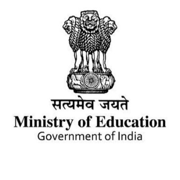About | Department of Higher Education (DHE) , All INDIA Check here latest notification
Department of Higher Education: An In-Depth Look
The Department of Higher Education plays a pivotal role in shaping the higher education landscape in a country. Its responsibilities encompass the development, regulation, and enhancement of institutions of higher learning, including universities, colleges, and research institutions. Through various policies and initiatives, this department ensures that higher education meets global standards and contributes significantly to the nation's progress.
Mandate and Objectives
The primary mandate of the Department of Higher Education is to:
- Promote Quality Education: Ensure that higher education institutions provide high-quality education that is relevant to contemporary needs and global standards.
- Foster Research and Innovation: Encourage research and innovation to contribute to knowledge creation and technological advancements.
- Enhance Accessibility: Make higher education accessible to a broader population, including marginalized and economically disadvantaged groups.
- Regulate Institutions: Oversee the functioning and regulation of higher education institutions to maintain standards and accountability.
Structure and Functions
The Department of Higher Education typically operates under the Ministry of Education (or a similar governmental body) and carries out a range of functions:
- Policy Formulation: Develop and implement policies related to higher education, including funding, accreditation, and curriculum standards.
- Institutional Support: Provide support to universities and colleges in areas such as infrastructure development, faculty training, and student services.
- Quality Assurance: Establish mechanisms for evaluating and ensuring the quality of education and research activities in higher education institutions.
- Funding and Grants: Administer funding programs and grants to support educational and research activities, as well as to improve institutional infrastructure.
- Coordination and Collaboration: Coordinate with other governmental bodies, educational institutions, and international organizations to enhance the higher education system.
Key Initiatives and Programs
The Department of Higher Education often launches several initiatives and programs to achieve its objectives:
- Accreditation and Ranking Systems: Implement accreditation processes and ranking systems to assess and enhance the quality of higher education institutions.
- Scholarships and Financial Aid: Provide scholarships and financial aid programs to support students, especially those from underprivileged backgrounds.
- Faculty Development: Organize training and professional development programs for faculty members to improve teaching quality and research output.
- Infrastructure Development: Support the development of educational infrastructure, including modern classrooms, libraries, and laboratories.
- Research Promotion: Facilitate research by funding projects, promoting collaboration between institutions, and supporting research centers.
Challenges and Solutions
The Department of Higher Education faces several challenges:
- Quality Disparities: There are disparities in the quality of education across institutions. To address this, the department works on implementing uniform standards and accreditation processes.
- Access and Equity: Ensuring equitable access to higher education for all segments of society, including marginalized communities, remains a challenge. The department addresses this through targeted scholarships and outreach programs.
- Infrastructure Gaps: Many institutions face infrastructure deficiencies. The department addresses this through funding programs and partnerships with private sector organizations.
Future Directions
Looking forward, the Department of Higher Education is likely to focus on:
- Digital Transformation: Embracing digital technologies to enhance teaching methods, administrative processes, and student engagement.
- Global Collaboration: Strengthening international partnerships and collaborations to enhance the global standing of the nation’s higher education institutions.
- Sustainability and Innovation: Promoting sustainable practices and encouraging innovation in curriculum and research to keep pace with global trends.
Conclusion
The Department of Higher Education plays a crucial role in shaping the future of a nation’s educational and research landscape. By focusing on quality, accessibility, and innovation, the department ensures that higher education institutions can meet contemporary challenges and contribute to national and global progress. As it continues to evolve and adapt to new trends and challenges, the Department of Higher Education remains central to fostering an environment where knowledge and innovation thrive.





